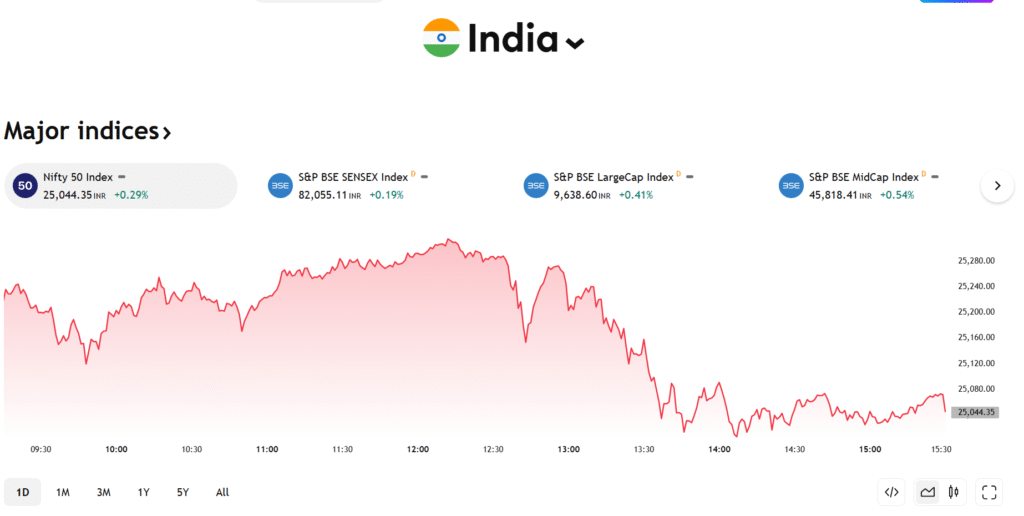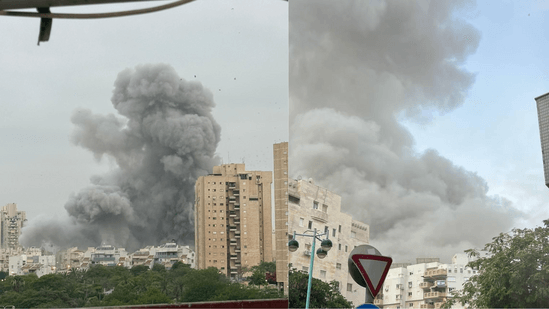By Mumbainews24 | Updated: June 24, 2025
In a dramatic turn of events, Iran and Israel have declared a temporary ceasefire following a fiery 12‑day conflict that spooked the world. This latest development, brokered with help from the U.S. and Qatar, has sparked a wave of relief—but the calm is tenuous. With ripple-effects stretching from Tehran to Mumbai, here’s a full breakdown of what has unfolded, why it matters, and what Indian interests should watch out for.
What’s Happening Between Iran and Israel?
After nearly two weeks of heavy fighting, Iran and Israel have finally agreed to a temporary ceasefire. The development came after intense backdoor negotiations by Qatar, the US, and European Union representatives.
This ceasefire has brought some much-needed relief to the Middle East region and has been welcomed by many countries, including India, which called it a “positive step towards peace.”
How Did the Conflict Start?
A Quick Timeline
- Around 13th June, Israel launched attacks on Iran’s nuclear and military sites.
- Iran retaliated by firing missiles, including at a US base in Qatar.
- Civilian areas were caught in the middle, with rising casualties on both sides.
- Global leaders started urging both nations to de-escalate immediately.
When Was the Ceasefire Announced?
The official announcement came on 24th June, after late-night discussions in Doha. While former US President Donald Trump claimed credit for the truce on social media, reports suggest that Qatari and EU diplomats were key to making it happen.
Ceasefire Terms:
- Iran paused attacks from 4:00 AM GMT.
- Israel joined the ceasefire from 4:00 PM GMT.
- A 48-hour monitoring window was agreed upon to track compliance.
How India Reacted
India responded quickly and responsibly:
- The Ministry of External Affairs (MEA) appreciated the ceasefire and encouraged both sides to engage in peaceful dialogue.
- India activated “Operation Sindhu”, a mission to evacuate Indian nationals stuck in conflict zones.
- So far, over 7,500 Indian citizens have been safely brought back home from Israel, Iran, and surrounding regions.
Impact on India’s Economy and Markets
The ceasefire had an immediate and positive effect on Indian financial markets:
- The Sensex went up by over 700 points.
- The Nifty 50 crossed 25,000—its highest in months.
- Oil prices dropped by 15%, reducing inflation worries.
- Aviation and energy stocks rallied thanks to cheaper fuel.
- The Indian Rupee strengthened, closing at ₹85.97 against the US dollar.
Experts believe if peace holds, India will continue to benefit from reduced fuel costs and better market stability.

What’s the Situation in Iran and Israel Right Now?
In Iran:
- Cities like Tehran, Shiraz, and Isfahan are slowly returning to normal.
- Shops have reopened, but people are still scared about a fresh round of attacks.
- Schools and government offices are open but with fewer people than usual.
In Israel:
- Emergency services reported at least 28 deaths and over 1300 injuries.
- Prime Minister Benjamin Netanyahu said: “Israel will remain calm as long as Iran respects the ceasefire. But we are ready to act if provoked.”
The Israeli army is still deployed across sensitive zones, just in case tensions rise again.
Why This Ceasefire Matters for Everyone
This is not just about two countries stopping their fight—it’s a global issue:
- Oil Prices: The entire world, especially countries like India that import oil, benefits from price stability.
- Indian Workers in the Gulf: Over 8 million Indians live and work in the Middle East. Their safety is directly affected.
- US Involvement: Attacks on US bases in Qatar increased global tensions.
- Nuclear Risk: Talks about Iran’s nuclear programme might resume, which will affect future relations.
- Cyber Threats: Both countries used cyber-attacks during the war. Global infrastructure remains vulnerable.
What Experts Are Saying
“This is only a temporary pause. We’ll need much stronger efforts to make this a lasting peace.”
— Prof. Rakesh Mehta, International Affairs, JNU
“India should now focus on building energy partnerships in the region and playing a diplomatic role.”
— Aarti Bhandarkar, Economic Analyst
FAQs
Q1: Is this ceasefire permanent?
No. This is just a temporary arrangement. Both sides are still ready for conflict if anything goes wrong.
Q2: How did India help?
India safely evacuated over 7,500 citizens under Operation Sindhu and supported peace talks at global forums.
Q3: Did Iran really attack a US base?
Yes. Iran launched missiles at the US Al Udeid Air Base in Qatar, but most were intercepted.
Q4: Will petrol and diesel prices go down now?
If the ceasefire continues, fuel prices could drop in India as global crude oil rates fall.
Q5: Can the war restart?
Unfortunately, yes. The situation is still very tense, and any miscalculation can lead to another conflict.
What Should We Keep an Eye On?
Cybersecurity Alerts Globally
UN Peacekeeping Discussions
Talks Around Iran’s Nuclear Programme
Oil Price Movements
India’s Diplomacy in the Middle East
Final Thoughts
This Iran–Israel ceasefire is a much-needed pause, but the road to real peace is long. For India, this moment is a chance to focus on energy diplomacy, economic recovery, and regional cooperation.
Peace is always better than war—but we must stay alert and continue encouraging dialogue, understanding, and mutual respect among nations.



